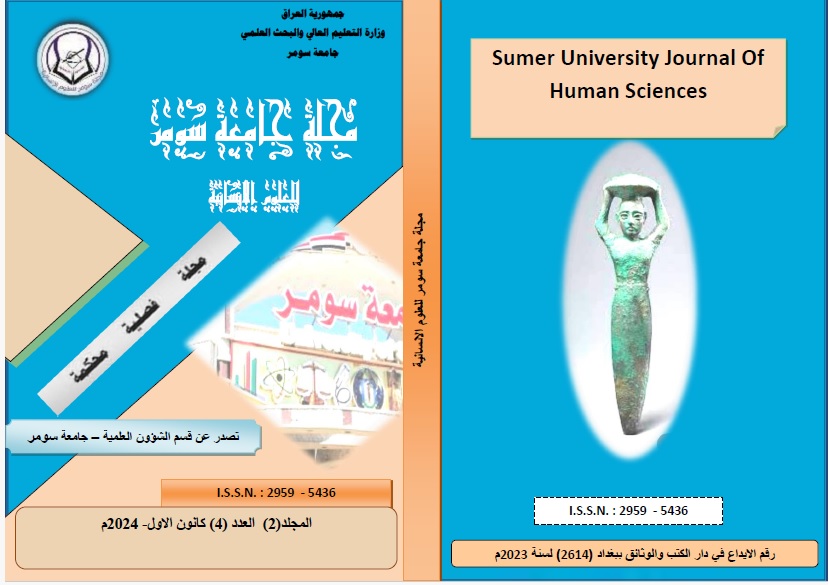The Ministry System in the Islamic Eras through Archaeological Sources (The Abbasid Era as a Model) (An Archaeological and Civilizational Study)
Keywords:
(العصر الإسلامي،الوزارة، النظام الإداري، المصادر الأثريةـ ، الولايات، المراكز الإدارية).Abstract
The ministry is considered one of the basic systems in Islamic politics, as it has gone through several stages since the era of the message. The Messenger Muhammad (may God bless him and his family and grant them peace) gave the title of minister to some of the companions, which indicates the importance of this system. The ministry emerged clearly in the Abbasid era, as it is the cornerstone of
any political system, as the minister bears many tasks and duties. This research deals with the emergence and development of the ministry, as well as the administrative system in the Islamic era through archaeological sources, analysing how these sources contributed to shaping the modern understanding of that period. The research also focuses on the organization of states and regions, and the roles played by administrative centers in supporting stability and civilizational prosperity, while shedding light on the ministry system in the Abbasid era, which witnessed remarkable developments. Ministers enjoyed wide influence and great responsibilities, including managing governmental and financial affairs in that era. The Builds dominated Iraq and Iran, which greatly affected the political system. Despite the continuation of the Abbasid Caliphate, actual power was in the hands of the Builds. In the Seljuk era, the Abbasid caliphs regained some of their influence, but the Seljuk sultans enjoyed great power. Especially in the military and administrative fields. These transformations in the ministerial system reflect the profound political and social changes that the Islamic world witnessed during those periods.


